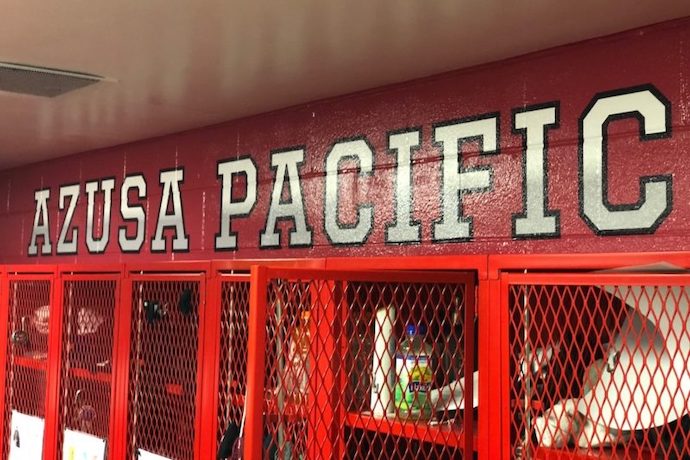To the surprise of many, and to the predictable dismay of evangelical culture warriors, Azsua Pacific University has moved—again—to allow its students to participate in what it calls “romanticized same-sex relationships.” The policy now, in theory, holds students to the same standard of conduct whatever their personal views on faith and sexuality. Students can engage in dating relationships as they like, but sex for non-married students is still against the rules.
The initial change was announced for the fall semester of 2018, but it prompted a fierce backlash from right-wing faculty, alumni, and evangelical public figures, leading the Board of Trustees to overturn the policy change in a case I documented as part of a larger investigative exposé into the mistreatment of LGBTQ students at Christian colleges and universities. I later reported for RD about concerns that the situation at APU could worsen, particularly with respect to faculty allies who often provide vital support for LGBTQ students in the generally hostile environments of evangelical schools.
Indeed, according to a faculty source who requested anonymity out of concern for possible reprisals, despite APU’s loosening of restrictions on its student population, the administration is pressing ahead with stricter enforcement of hardline orthodoxy on sexuality among faculty.
Does the case of APU, then, represent a victory for the students, alumni, advocates, and activists who have been working to push APU toward a more inclusive stance? Certainly, student activists and representatives of Brave Commons, a volunteer organization led by queer alumni of Christian colleges who advocate for LGBTQ inclusion in these spaces, put in a tremendous effort, both ahead of the initial change, and in response to the reversal. And that effort has had an impact.
Alexis Diaz is a queer senior at APU who organized events in response to the board’s reversal of the initial change. During the current academic year, as Speaker of the House in the Student Government Association (SGA), Diaz introduced the resolution calling for same-sex relationships to be permitted again. As she describes the process, “A group of friends and I worked day in and out to research about laws, mental health statistics and ways that would support our cause to make sure LGBTQ+ students were being well advocated for by reversing the policy and removing the ban.” The resolution passed by a 2/3 vote, and, after some delay, was accepted by the board.
According to Cayla Hailwood, a queer senior who was instrumental in drafting the SGA resolution, “LGBTQ+ students definitely take this as a victory.” Hailwood doesn’t just cite the fact of the policy change itself, but also “the opportunity for more discussion and visibility on campus. There is hope for student forums and academic forums to discuss queer theology.”
It isn’t clear, however, the extent to which such academic fora would be possible under an administration that requires faculty to affirm that marriage can only exist between one man and one woman and that any sex outside of such a union is a sin. Nor is it clear how faculty would feel safe openly exploring queer theology while contractually required to oppose same-sex relationships on theological grounds.
And according to the anonymous faculty source, “Faculty have a new clause in their forthcoming contracts stating that we ‘affirm, sustain, and support’ the full statement of faith, including the statements on identity. Prior to this we [only] had to affirm that we were Christians and believed the core gospel tenets.” This source also maintains that morale among more moderate to progressive faculty is low and cites internal survey data showing that a majority of APU faculty are on the job market.
In addition, the source says that “Provost [Mark] Stanton has been attending all college meetings emphasizing that anyone who doesn’t fully support the identity statements should look for work elsewhere.” Diaz adds, “The administration has been very strategic and hesitant about on-campus events that involve LGBTQ+ conversations and stories because they don’t want any more backlash. What’s upsetting about this is that they continue to silence LGBTQ+ voices.”
Unlike many other member schools of the Council for Christian Colleges and Universities, Azusa Pacific accepts non-Christian as well as Christian students, and thus does not require students to sign its statement of faith. This in particular may have made it untenable for the school to hold to overtly discriminatory rules with respect to student conduct in the face of public scrutiny.
Before the latest change, APU alum and Brave Commons leader Erin Green, who has worked closely with APU students from the beginning of the push for change, began encouraging students to file challenges to APU’s accreditation with the Western Association of Schools and Colleges, an effort she has now called off. Green is cautiously optimistic that APU’s move to allow same-sex dating may be a step toward full LGBTQ inclusion. She says: “I personally believe that the two very conservative board members who left in December opened up a lot of leeway and room for the more progressively minded board members.”
Only time will tell whether Green’s optimism is warranted. What student activists and their allies have achieved at APU is worth celebrating, but the victory remains tenuous and incomplete. APU is completing a search for a new president amid financial troubles, and both of these factors could result in significant changes in the near future. As Green warns, “I personally hope for a new president who will hold a vision for inclusion for APU. If that is not the trajectory of this school, it will slowly die off.”





